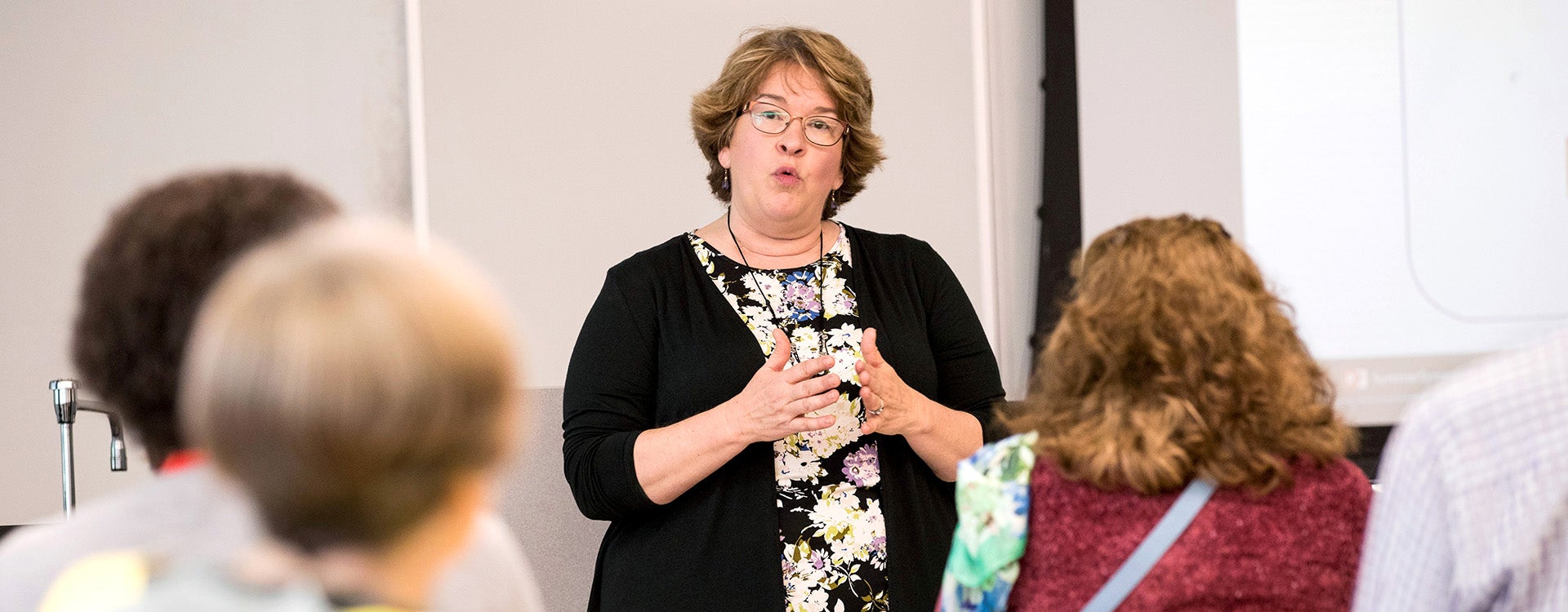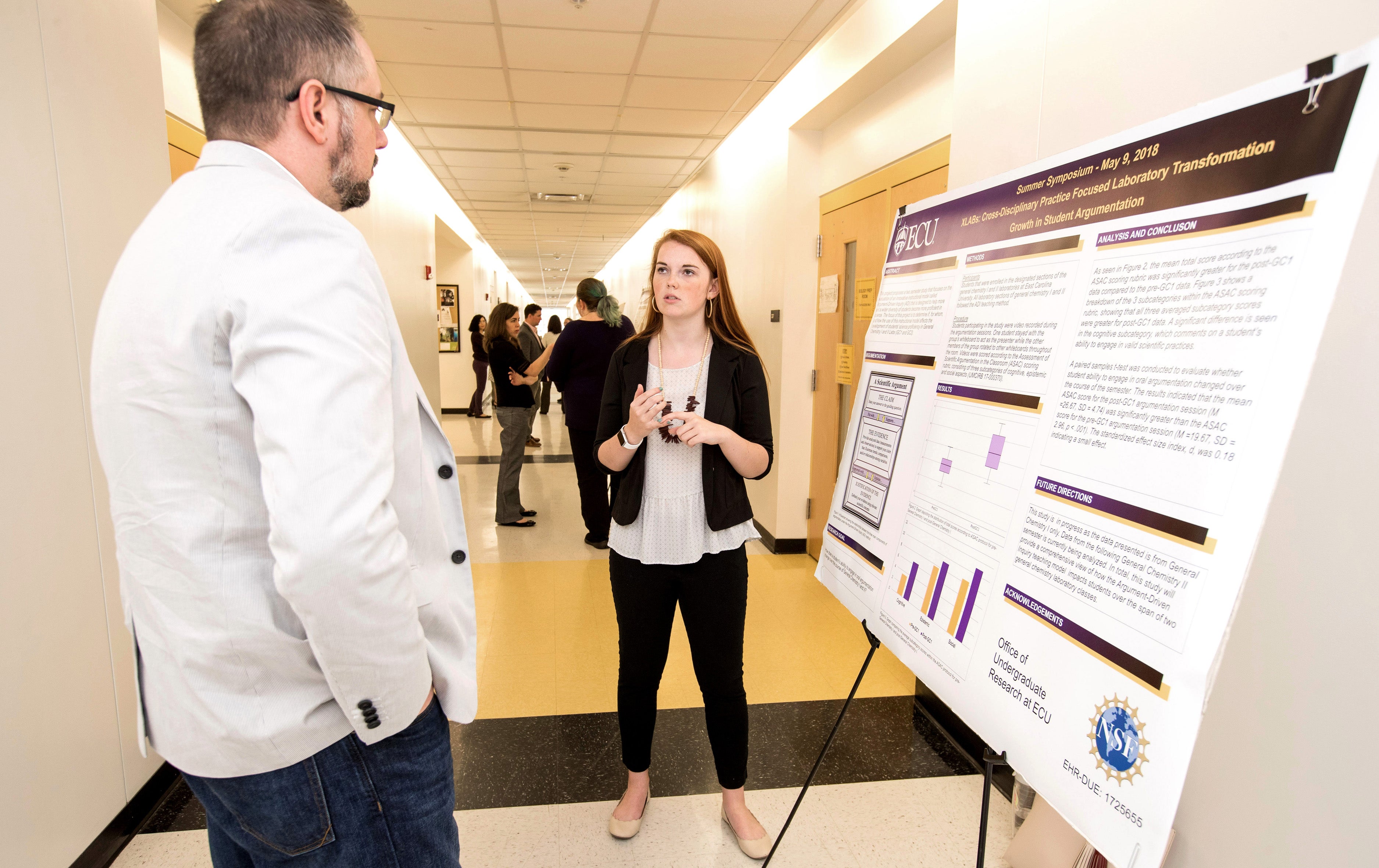New focus for lab courses introduced
Instead of repeating tried-and-true experiments in their science laboratory courses, university and community college students in eastern North Carolina will soon be learning and conducting science in a more interactive, engaging way.
That’s thanks to new way of leading student laboratory courses called X-Labs. Science educators from East Carolina University and area community colleges learned about the concept May 9 at the X-Labs Summer Symposium at ECU.
Traditionally, instructors teach lab courses in a “cookbook style,” said Joi Walker, an assistant professor in the Department of Chemistry. Students follow steps, collect data and move on to their next assignment.

Joi Walker, assistant professor of chemistry, discusses the X-Labs concept to a group of educators during a summer symposium in the Science and Technology Building on May 9. (Photos by Rhett Butler)
The X-Labs model is a cross-disciplinary, practice-focused model that changes the structure of standard lab courses. Instead of following a set design, students will be a part of the design process while also working with larger teams to create written lab reports and poster presentations.
The program’s goal is to increase student’s ability to engage in science practices between and across disciplines, bringing together a common lab structure and language for undergraduate students.
“Today, we’re introducing the new path we’re headed toward with our lab courses,” Walker said. “We want the leaders in our scientific disciplines to know about the changes coming their way. X-Labs is a different way of doing things; we want to ensure that the campus community is aware of the program and the changes they may see in lab courses moving forward.”
The X-Labs program is a three-year project funded by a $598,000 grant from the National Science Foundation. The grant tasks X-Labs program leaders with transforming lab courses at an institutional level to better prepare undergraduate students for careers in STEM fields. X-Labs will also seek to change lab course structure at community colleges in eastern North Carolina.

ECU student Meghan Lower discusses a poster on X-Labs during a summer symposium on X-Labs at the Science and Technology Building.
The ECU chemistry department is leading the change and will begin conducting courses this summer using argument-driven inquiry. Argument-driven inquiry is an instructional model featuring eight stages of scientific discovery: identifying a task and guiding question, designing a method and collecting data, developing an initial argument, hosting an argument session, conducting a reflective discussion, writing an investigative report, participating in a double-blind peer review, and revising and submitting a final report.
The biology department will follow with X-Labs implementation in the fall, with physics to follow. Walker expects all three deparmtents to have X-Labs courses running by next spring.
“X-Labs changes the culture of lab work,” Walker said. “It’s authentic science. Students are going to be taking a more active role in the lab and that’s going to be better for our students and faculty. ECU has a large undergraduate student population. Our faculty members depend on these undergraduates to help conduct research. X-Labs will better prepare these students to take on that challenge, benefiting both mentor and mentee.”
Mary Farwell, director of undergraduate research, said the program has wide-ranging implications for student research.
“The X-Labs project guides students to make connections between different lab courses,” Farwell said. “They truly learn how science is carried out by scientists. After completing X-Labs, students will be more prepared for and, I believe, more interested in, faculty-mentored undergraduate research.”
For more information on X-Labs, contact Walker at walkerjoi15@ecu.edu.
-by Matt Smith, University Communications